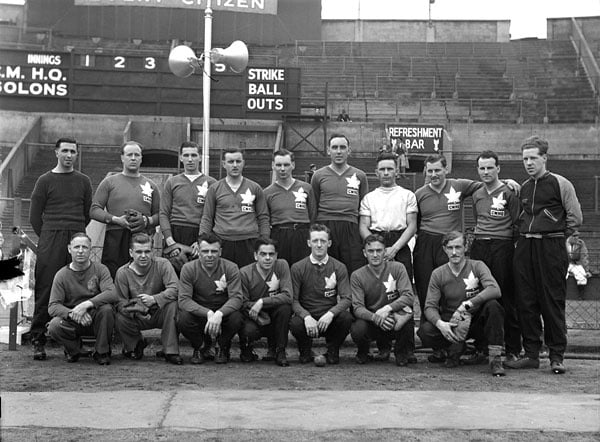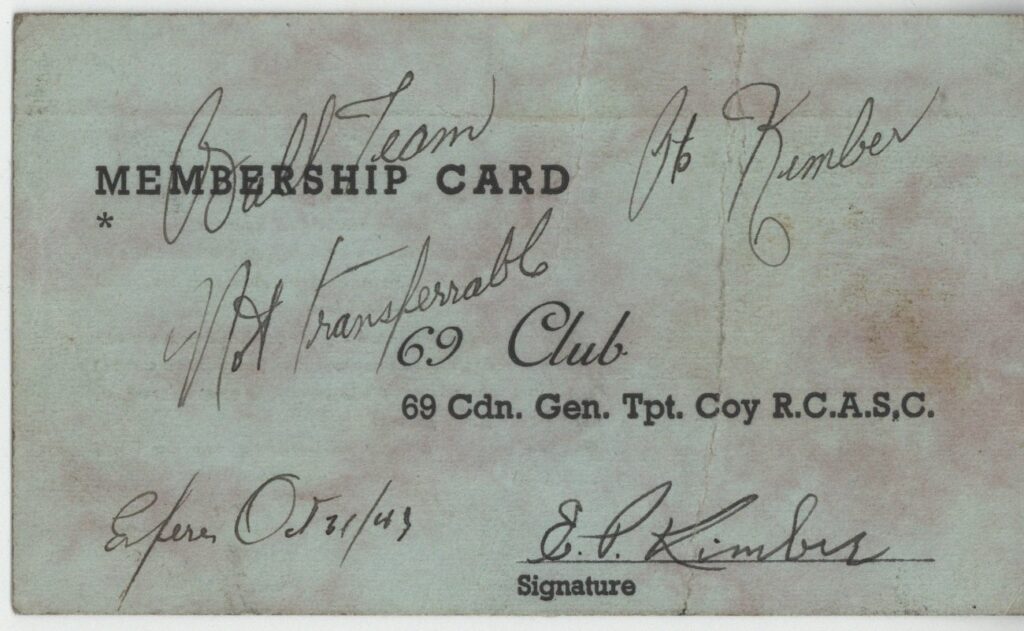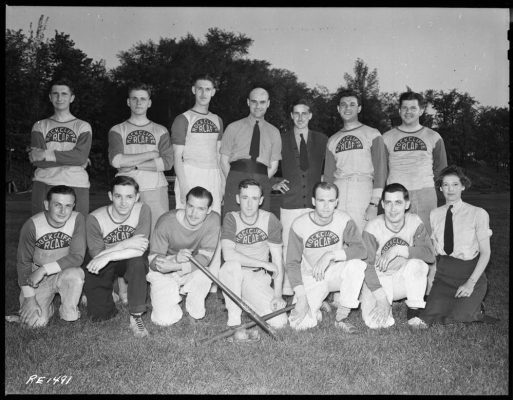
Baseball was key as a morale booster during the Second World War: it created a brotherhood among soldiers, and it kept the soldiers active, fit, and sharp during downtime. However, baseball was more than a simple game to many soldiers; it was potentially life-changing.
Fundraiser games, played both within Canada and overseas, were an important method for bettering the experience of soldiers. Fundraiser games brought in scarce items (razors, blankets, clothes), war funding, or even treats from home to send to the soldiers who benefited plentifully through the products gathered in the benefit baseball games.
There was even the possibility that playing baseball, in Canada and overseas alike, could earn a soldier a delay, or even an evasion, of their deployment. Within Jack Edward Kelleher’s letters (read about Kelleher’s experiences in the Stories section), there is evidence that he was held back in England after completing training courses by his superiors because he was playing some excellent baseball for the Canadian Military Headquarters (CMHQ) team. That may have significantly changed the trajectory of his life, as he would remain stationed with the Reserves (#1 C.A.R.U.) through D-Day (June 6, 1944) (see Letter 2 in Kelleher’s story in Storylines: Canadian Wartime Ballplayers where he references the D-Day invasion).

Kelleher’s letters also suggest that there was the potential for the ball-playing soldier to request his eventual unit of choice upon his deployment, if favoured by his higher-ups (see Letter 7 in Kelleher’s story in Storylines: Canadian Wartime Ballplayers). Following the ball season, Jack would request to be transferred to Belleville’s 34th Battery to pair up with compatriots from his hometown, to which his superior had promised his best effort to fulfil.
More than anything to these soldiers, baseball was what kept morale high. Morale was important in ensuring that soldiers were keeping busy, fit, entertained during downtime, and perhaps most importantly, were distracted from the realities of being a soldier. Soldiers were also interested in results of games and leagues played back in Canada and the United States, keeping up with their local teams, leagues, and former teammates while writing back home, or when the newspapers from home came into camp. Even the spectators, maybe not good enough to play competitive ball themselves through the war, watched baseball as a form of tradition, enjoyment, and entertainment to relive their pre-war days. The impacts of the game of baseball went far beyond the ball diamond for many Canadian soldiers.














